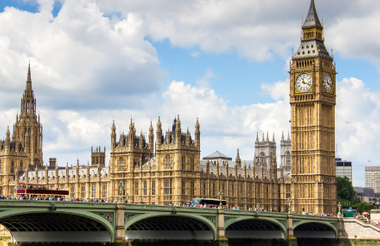The UK general election has been announced for 4 July, and regardless of the outcome, charities may be thinking about engaging with politics in so far as it impacts their causes.
Many in the charity sector have been speaking up and sharing their expertise and opinion. As charities offer frontline support and expert understanding, it is important their voices continue to be heard over the next six weeks.
Following prime minister Rishi Sunak’s announcement on Wednesday, charity leaders were encouraged to “campaign with confidence” by sector bodies.
Though charities can campaign, there are some rules which charities need to be aware of when engaging in political activity, and charities must be cognisant of the law in order to campaign with confidence.
Orlando Fraser, chair of the Charity Commission, recently reiterated the regulator’s position on campaigning. He has said that charities that engage in political campaigning must do so in a “responsible and measured fashion” which does not incite inflammatory rhetoric and undermine public trust.
Nonetheless, Fraser also reiterated his commitment to stand up for the right of charities to lawfully campaign, “even while some critics seek to question charities’ campaigning role”.
Charity law
There are several aspects of charity law which charities should be aware of, with the main being campaigning and political activity guidance for charities (CC9).
It states to be a charity an organisation must be established for charitable purposes only, which are for the public benefit. An organisation will not be charitable if its purposes are political.
However, campaigning and political activity can be legitimate and valuable activity for charities to undertake and “there may be situations where carrying out political activity is the best way for trustees to support the charity’s purposes”.
Importantly, a charity must stress its independence and ensure that any involvement it has with political parties is balanced, and must not give support or funding to a political party, nor to a candidate or politician.
Trustees are not required to campaign, but a charity may choose to focus most, or all, of its resources on political activity for a period.
Another key piece of guidance is the Commission’s Charities, Elections and Referendums advise, which is for use by charities during the period between the announcement of an election, and the date on which an election is held.
This should be read in conjunction with the more detailed CC9 guidance, which continues to apply during an election period.
Guidance is shaped around what the Commission sees as key risk areas for a charity’s party political independence.
It says that charities are free to approach the candidates in an election, setting out the charity’s concerns and asking for the candidates’ opinions on them, but should be especially wary of associating or becoming associated in the minds of the public with a particular candidate or party.
Five-minute guides
The Commission has also published five-minute guides for charities using social media and on political activity and campaigning.
The social media guidance shows that the Commission expects charities to have a policy in place if they are using social media.
It adds: “It is important to think about how your charity can use social media effectively to benefit your charity, the risks it may bring, and how you can manage those risks, including by acting reasonably and responsibly to protect your charity.”
Social media should also comply with other relevant laws, for example UK GDPR rules, defamation law and equality and human rights law including discrimination, victimisation, harassment, and freedom of expression.
The guidance on political activity and campaigning by charities states that if something goes seriously wrong, the Commission or the courts may look into how the charity was managed and how decisions were made.
“The Commission does not expect you to be legal experts, but we will consider what you could have reasonably known or found out when you made your decisions,” it states.
Some key takeaways from these documents on charity law are that a charity may use any reasonable method to campaign, so long as it is lawful, and an effective use of charitable resources.
Charities can also use emotive material in their campaigns, but only where this is justified in the context of the aims of the campaign. It must be factually accurate.
The Commission’s view is that a charity cannot be party political, but often political activity and campaigning can be different parts of an ongoing focus on a particular issue or charitable purpose.
Election law
There are also election laws which can potentially apply to all organisations, including charities.
Key ones to be aware of are the Political Parties, Elections and Referendums Act 2000, the Lobbying Act 2014, and the Election Act 2022.
The Lobbying Act 2014 and the Elections Act 2022 concern rules around campaigning in an election without registering as a political organisation.
Electoral law requires charities to register as non-party campaigners if they spend over £10,000 on regulated campaign activities in the 12 months leading up to the next election.
The Electoral Commission also produces specific guidance ahead of each election, which contains details of the regulated period, spending limits and reporting requirements.
Lloyds Bank Foundation for England and Wales has also published guidance on what charities should pay attention to and around what a general election means for charities and the people who use charity services.
Strong appetite for charity campaigns
Ultimately, campaigning is a core part of many charities makeup and charities are able to engage in political activity, despite some commentators suggesting otherwise.
Research also shows that charities have a role in influencing government, with most adults in the UK thinking the government should listen more to charities.
Indeed, recent analysis by the Sheila McKechnie Foundation and Governance & Leadership magazine has pointed to a strong appetite for charities to speak up on issues that are core to their charity’s work.
As well as some of the laws covered in this article, there are other areas which charities will need to be aware of, for example the law around content regulation.
Moreover, particular regimes in other jurisdictions such as in Northern Ireland may have different laws of which charities need to be aware.
An active civil society is critical to our democracy so it is crucial that charities familiarise themselves with the rules so they can campaign with confidence.
Related Articles












